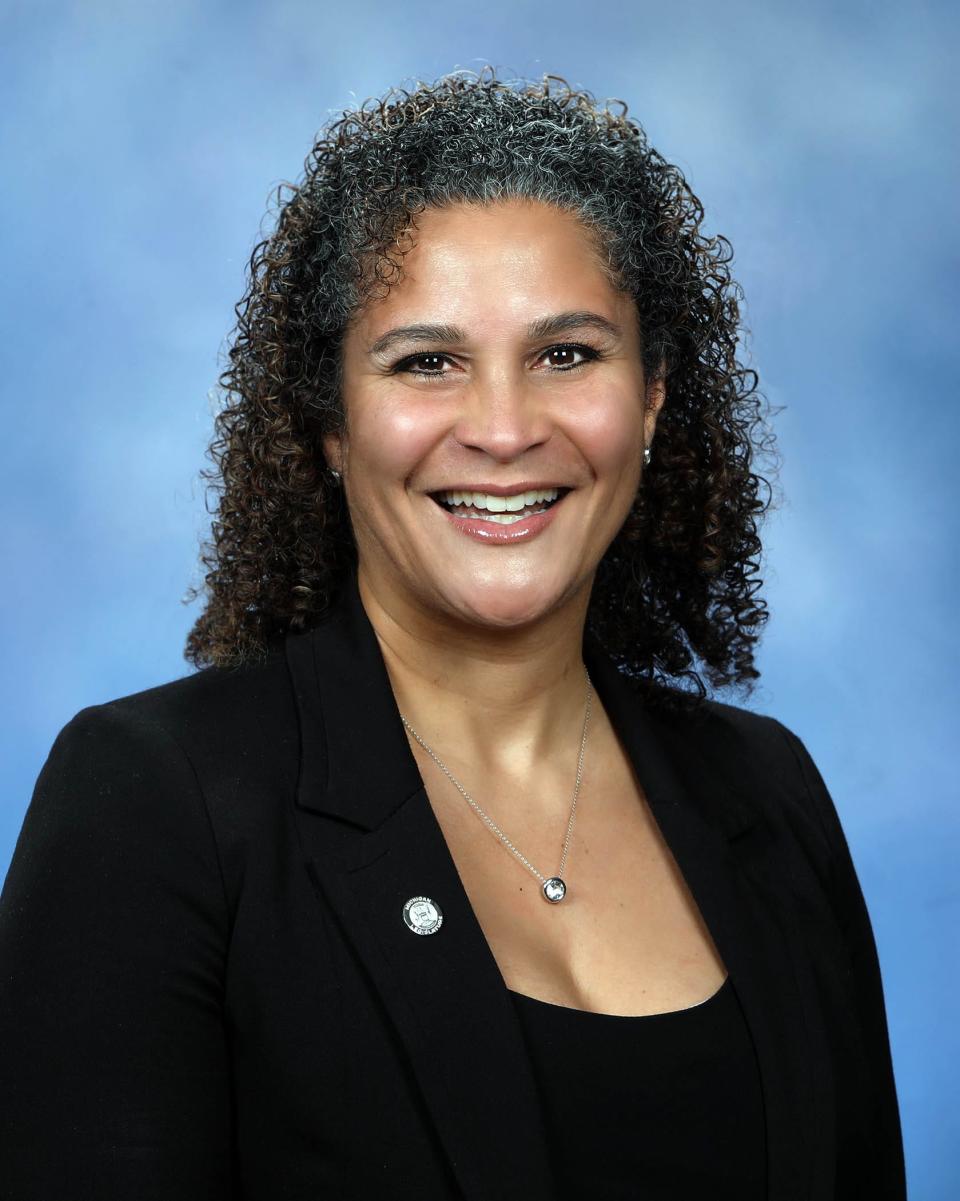A federal law demands mental health care parity. Why don't kids in Michigan get it?
Many Michigan families will have to keep paying out of pocket for mental health and substance use care for their children after state lawmakers adjourned without a vote on a mental health parity bill.
The Legislature ended its session early without passing HB 4707, a bill that would require insurance companies in Michigan to provide coverage for medically necessary treatment of issues including eating disorders, addiction and mental illness.
The bill will be back on the table when the Legislature reconvenes, and advocates say a vote can’t come too soon. They say insurance companies violate federal law, making arbitrary decisions about the treatment children need, failing to match available care with kids’ health needs and terminating their access to care before treatment is complete.
Parents of children who are struggling with serious mental illness and substance use disorders say the current system can block access to care and, in extreme cases, force families into financial ruin with little recourse.
“Families are struggling out there,” said Angela Kimball, senior vice president of advocacy and public policy at Inseparable, a mental health advocacy organization involved in efforts to pass HB 4707. “They don't understand why they're being denied care or why there are these interminable delays, and I'm thinking: Those are the lives of kids.”
Bill sponsor state Rep. Felicia Brabec, who is also a licensed clinical psychologist, said the fact that insurance companies have been able to deny people coverage without providing a clear reason has limited the ability of hundreds of thousands of Michiganders to get help for themselves or their children.

“Over half of the folks who have either a mental health issue or substance abuse issue are not able to get access to the care that they need,” Brabec said.
A ‘tsunami’ of mental health claims for kids
States are considering mental health parity laws as our nation awakens to an emerging mental health crisis among children.
The Centers for Disease Control and Prevention reported that feelings of persistent sadness and hopelessness — as well as suicidal thoughts and behaviors — increased by about 40% among young people in the decade preceding the pandemic.
The social isolation, online bullying, and exposure to stress, anxiety and abuse at home made things markedly worse. During the pandemic, nearly one in five students seriously contemplated attempting suicide.
“Public school teachers are sensing this, pediatricians are sensing this, psychologists are sensing this,” said John Joseph Conway, principal attorney and owner of J. J. Conway Law in Royal Oak. “This is a moment in time where, after COVID, there was just a tsunami of these types of claims.”
After 25 years of running a practice that includes benefits law, Conway said 50-60% of his firm’s caseload is now mental health treatment claims for kids.
“I’ve never seen anything like this,” he said.
Shocked, horrified and angry
Effectively treating mental illness and substance use disorders in children can enable them to live full and productive lives. The opposite can also be true.
“It isn't benign to fail to address mental health conditions when they first come up,” said Kimball. “It's when we don't provide adequate services and supports — that's when conditions can go haywire, and people's lives are really disrupted.”
But parents who are new to seeking mental health care often encounter a completely different system than the one they rely on to treat a child’s ear infection, heart condition or asthma.
“Families are shocked, horrified, angry, all of the above and more when they find out that insurance absolutely dictates what happens in mental health,” said Dr. Laura Hirshbein, a University of Michigan psychiatrist who studies mood and behavior disorders in children and adolescents.
Insurance companies dictate what kind of services a child can get outside of acute care and have widely different criteria about what requires hospitalization. “What is medically necessary and who gets to define it is really squishy,” Hirshbein said.
An impotent federal law
States including Michigan have stepped up with their own legislation despite the fact that mental health parity is already part of federal law. The 2008 Mental Health Parity and Addiction Equity Act requires insurance plans to cover mental health and substance use disorder treatment with no more restrictions than they’d put on treatment for other medical conditions.

Conway said the federal law falls short.
“In terms of the average person that’s out there trying to secure mental health treatment, particularly for kids or for family members that are dealing with addiction issues, there’s just not a lot that law does,” he said. “It doesn’t give you damages; it doesn’t allow you to make your case to a jury; it doesn’t have a lot of potency.”
Hundreds of Michigan families have found this out the hard way when they’ve turned to insurance to cover treatment for their children’s mental health and substance use disorder treatment only to be ignored, delayed and denied.
“It’s exhausting and overwhelming and devastating and stresses every relationship,” said Rachel Murray, who administers a Facebook group for Michigan parents of children with mental illness. “It's like there's every possible obstacle put in front of you.”
Murray’s own son struggled with mental health issues that led him to become destructive and dangerous when he was 13 years old. She was relieved to learn that her insurance policy covered the treatment his doctors said he needed: residential care at a specialized facility.

But a month or two after treatment began, so did the denials. The company said treatment wasn’t medically necessary, that they needed to provide more documentation, “one thing after another,” she said.
“It’s exhausting just to think back about all of the paperwork we were doing, and none of it was getting us anywhere.”
Ryan Hampton, organizing director at the Recovery Advocacy Project, calls actions by insurance companies that deny mental health care criminal.
“Mental health and addiction parity has been a federal law on the books since 2008, yet insurance companies commit deadly crimes every single day, in Michigan and around the country, in violating people's parity rights and their ability to access qualified health care treatment for their substance use disorders,” he said.
Insurance companies make ‘life-or-death’ mental health care decisions
Some insurance companies do make the connection that mental and physical health are inextricably linked and that paying for one can lead to cost savings for the other, said Justin Brown, director of utilization review at the Eating Recovery Center.
“A lot of our patients, if they don't receive solid mental health care, they will tend to cycle in and out of emergency rooms and things that ultimately end up costing insurance companies a lot more money than if they were to just fund mental health effectively,” Brown said.
He said one of the most problematic practices he’s seen by insurance companies is cutting patients off from a higher level of care before they’re ready to drop down to a lower level, causing them to bounce back and forth. Policies with exclusions for certain disorders or certain levels of care have a similarly devastating result for families.
“It's expensive for society, it's expensive for the insurance companies. I don't know why policies like that are even allowed to exist,” said Brown. “People are not getting care that they need, and it's sad because for a lot of people it really is a life-or-death situation.”
Hampton said it’s clear to him that greed is driving insurance plans’ decisions — not good mental health practices. Treating substance use disorders is indeed expensive, ranging anywhere from $500 to $2,000 a day. Detoxification services can cause those costs to double.
But, Hampton said, insurers make arbitrary, unsubstantiated and profit-driven decisions about how much care to make available.
“They know that when effective treatments are available and covered under their health insurance plans that people actually get better, but they just don't want to pay for them,” Hampton said. “And they're willing to break the law at every level that they can to avoid paying those claims.”
For anyone to pay into a system and then not be able to use it is unfortunate, Brown said. But for communities that historically have not received top-notch health insurance, the problem is compounded.
“For communities of color and marginalized communities that struggle to, in some cases, afford access to insurance, it ends up being correlated with difficulty getting care,” Brown said.
She thought she had excellent coverage
HB 4707 requires the treatment a patient receives to be based on national standards of care, not insurance companies’ own determinations. In its original form, the bill also required insurance plans to cover services supplied by an out-of-network provider if an in-network one was not available.
That would have helped one mother in Livingston, whose name is being withheld to protect her children’s privacy.
For her, the pandemic lockdowns were the tripwire that led her young son to exhibit uncontrollable behavior that required intensive psychiatric care, inpatient hospitalization and eventually residential care she could only find out of state.
Getting care for him was the focus, and paying for it was an afterthought at first, since she had an excellent plan from a major insurance company.
Her insurance company could not provide a list of in-network providers that matched her son’s needs. She and her husband paid out-of-pocket for his care while awaiting a response to the claims she dutifully submitted.
After waiting for them to be processed for weeks, then months, then over a year, the couple was forced to cash out their retirement savings accounts, sell a classic car and other possessions, remortgage their house, max out their credit cards and hold fundraisers.
She resubmitted the claims over and over again, faxing them to make sure there was a record of receipt, calling to follow up. Finally, after 42 weeks’ worth of claims, the company denied coverage for 41 of them.
“We have given him what he needs regardless of what the insurance companies are saying,” said the mother. But it has wiped out their savings, cost them jobs and damaged their own mental health.
The billable rates they’ve submitted claims for within the past year totaled $382,000, and they’ve spent over a quarter of a million dollars already.
So far, the company has reimbursed for care in the amount of $3,000.
Whittling down the bill
HB 4707’s original provision regarding out-of-network providers was stricken, as were around a dozen other pieces of the bill, as lawmakers debated its merits. Advocates say insurance lobbyists worked to defeat the bill.
Those efforts came as no surprise to Hampton.
“It is no shocker, that the insurance lobbyists pulling out all the stops to try and gut this bill,” he said. “The more they're able to gut it, the more they're able to water it down, the less money that they're going to have to spend to save lives. And that's the name of the game when it comes to health insurance.”
Blue Cross Blue Shield of Michigan did not say how much the company had spent on lobbying against HB 4707.
“Blue Cross complies with federal mental health parity requirements, and we support Senate Bill 27, which would codify those requirements into state law,” a company spokesperson wrote in an email. “We believe that House Bill 4707, on the other hand, would hinder patients from getting the right care, at the right time, at the right place, from an appropriately licensed provider. Most importantly, it fails to address growing provider shortages.”
That objection is a smokescreen, advocate Kimball said. “The entire intent of this bill is precisely to get people the right care at the right place at the right time,” she said.
She dismissed other concerns too; that it could lead to higher insurance premiums and wouldn’t fix the shortage of placement options for kids or grow the number of professionals equipped to serve them.
Insurance plans haven’t been bankrupted or been forced to raise premiums so much that people have dropped off in red and blue states where mental health parity laws have been passed, according to Kimball. She said enrollment has actually increased in all those states.
And she said although the bill was never intended to address provider shortages, it could potentially help in that regard too, by incentivizing more providers to enter or stay in the profession.
More: Without enough psychiatrists, pediatricians have become front-line mental health workers
A ‘beyond maddening’ lack of urgency to fix mental health care
Kimball said even in its latest form, the bill would be a strong first step that would help families.
Brabec conceded that HB 4707 might not pass, and that lawmakers supportive of stronger state mental health and substance use parity laws might have to propose even more incremental legislation.
Hampton said that in other states, passing these types of laws has been a multi-year effort. Yet he said politicians’ unwillingness to act was infuriating.
“It is beyond maddening that we’re sitting in the midst of one of the largest public health challenges that we have seen in this country … and that we have to fight tooth and nail with legislators to understand the value of getting insurance companies to meet us halfway and do what they're actually supposed to be doing,” he said.
Facebook group leader Murray agreed that the political inaction in Michigan was frustrating. Parents who use the group for resources and support don’t even discuss politics. “Nobody ever talks about that because we're all talking about how we need to fix this mental health system,” Murray said. “In the midst of a raging mental health crisis, why can they not get together to get this done?”
Jennifer Brookland covers child welfare for the Detroit Free Press in partnership with Report for America. Make a tax-deductible contribution to support her work at bit.ly/freepRFA. Reach her at jbrookland@freepress.com.
This article originally appeared on Detroit Free Press: New law would require insurance companies to cover mental health

